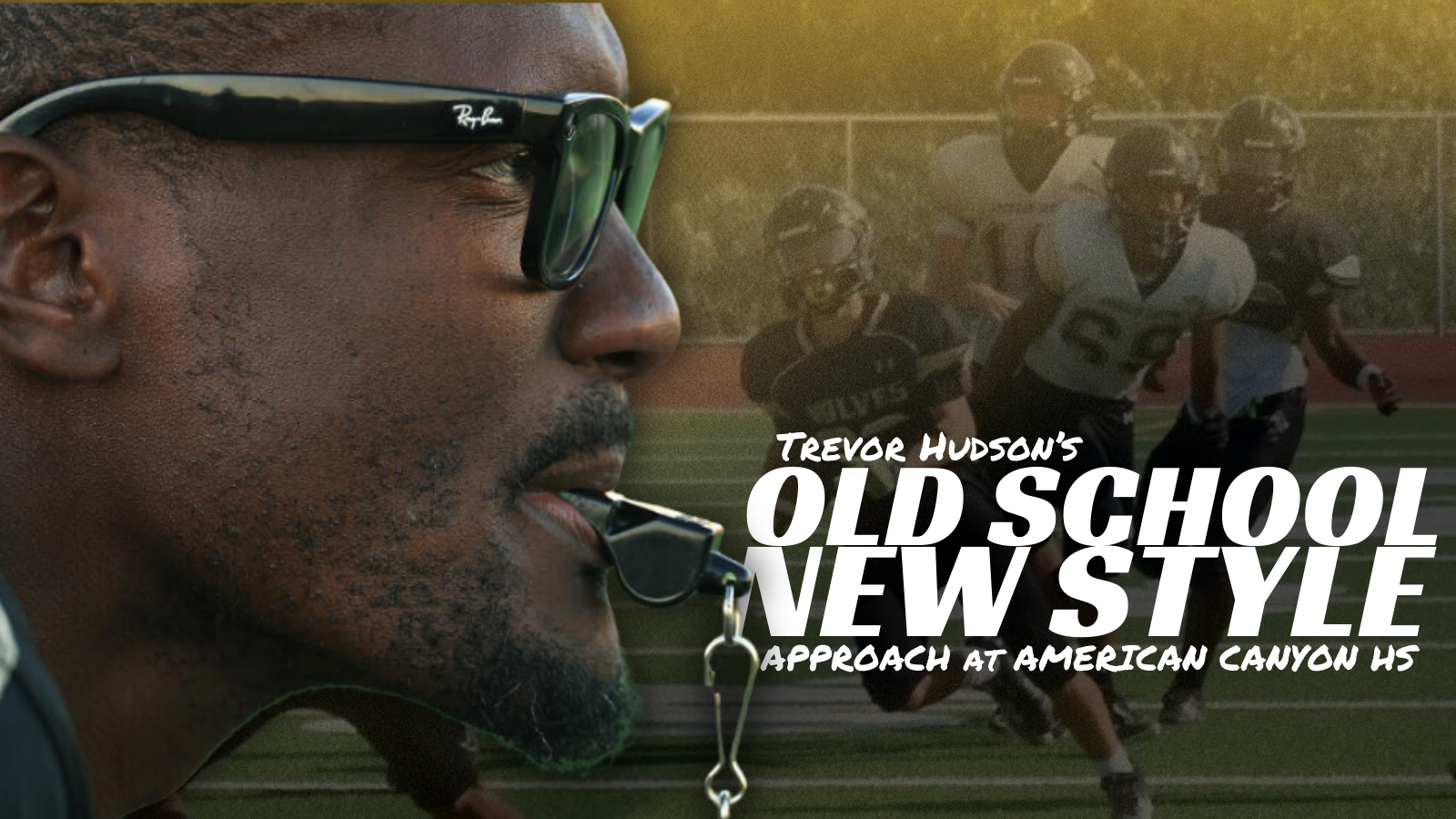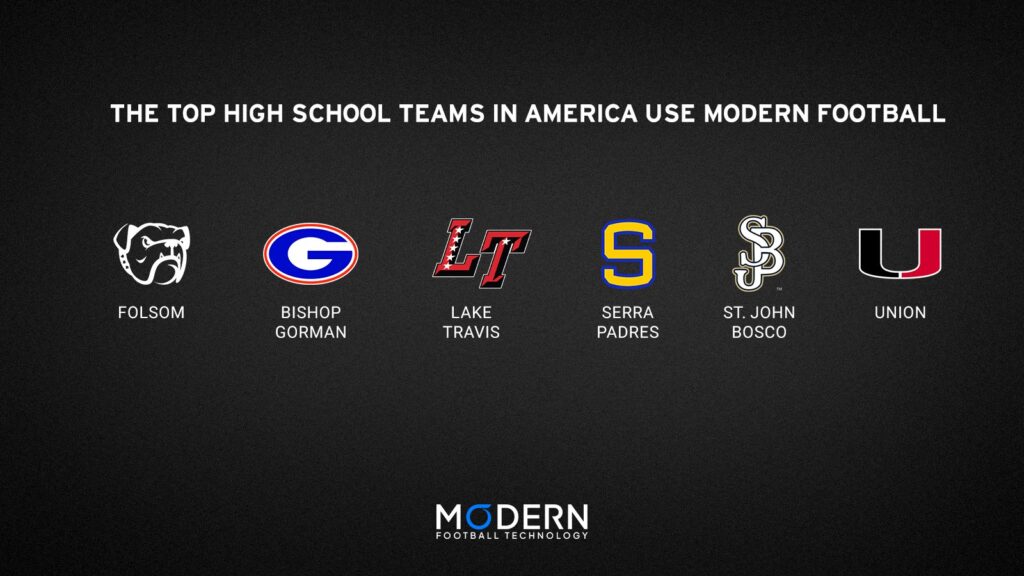
Blending Old School Coaching with New Style Connection
Coaching isn’t just about teaching plays or shouting orders from the sidelines; it’s about understanding, relating, and building relationships that resonate well beyond the field. For American Canyon’s Coach Trevor Hudson, this means combining old-school discipline with a new-school connection—a blend he believes is crucial for reaching today’s athletes.
“When I was coming up, you had to meet the coach where he was,” Hudson reflects. “Nowadays, it’s different. You have to find ways to relate to your players, to meet them where they are and bring them up.” Hudson’s approach doesn’t mean he’s easing up on discipline or the values he holds dear. Instead, he’s creating a bridge between the traditional grit and grind of old-school coaching with a modern emphasis on relational coaching.
Building Trust Through Personal Connections
For Coach Hudson, building trust starts with getting to know his players beyond their stats or plays. “You’re not just some guy with a whistle,” he emphasizes. “They have to know you care about them as people first. You need to be interested in what they’re interested in, care about what they care about.” It’s a simple but powerful reminder that players perform best when they feel valued as individuals.
Hudson invests in these relationships by taking his role beyond the typical practice hours. “I’m in the hallways, I’m at lunch with them, talking about their week, their lives,” he says. “I want to know more about them than just what they do as football players.” His approach is grounded in the belief that when players trust their coach, they’re willing to give that extra effort, to show up both on and off the field.
Meeting Players Where They Are—With Discipline
This blend of relationship-building doesn’t mean Hudson has abandoned old-school discipline. “Kids today want discipline; they just won’t tell you that,” he says with conviction. “They need rules, they need parameters, those bumpers to show how far they can go left or right.” Coach Hudson’s philosophy centers on providing this structure through respect and consistency, which he believes his players genuinely value.
“Kids today want discipline; they just won’t tell you that. They need rules, they need parameters, those bumpers to show how far they can go left or right.”
-Trevor Hudson
His method of connecting with players doesn’t sacrifice the values of hard work and accountability. “We’re not going to be perfect, but we are never going to stop pursuing perfection,” he explains. “That’s part of the discipline, that pursuit, and it carries well beyond the football field.”
Translating Culture to the Field: A Powerful Run Game
Coach Hudson’s dedication to discipline and trust shines brightest when the team takes the field. His commitment to an old-school, power-based run game has paid dividends for American Canyon’s offense, where ground-and-pound is more than just a strategy—it’s an identity. “We get after it on the ground,” Hudson shares proudly. “Before last game, we were averaging 377 yards rushing this season. I tell the team, it doesn’t matter if they load the box—we’re going to run the ball.”
The power run game is built around staple plays, honed to near perfection and executed with consistency. “You have a play, you make that your staple, and you run it until they know what’s coming,” he says. “You don’t have to get fancy if you’re good at what you do.”
This success on the ground is supported by an “old-school meets new-school” approach, enhanced by Modern Football Technology. Though his core philosophy remains rooted in traditional values, Hudson recognizes the advantages technology can offer. “I’m an 80s baby—I got that old-school mentality. But technology, man, it’s a legal advantage to know what you’re doing and to measure your success in real-time,” he says.

Combining Technology with Tradition
Modern Football Technology has become a game-changer for Hudson’s run-heavy strategy. By using real-time data analytics, he’s able to make precise, informed decisions to maximize play efficiency. “It lets me know what run play I’m running, how effective it is, and what we’re gaining from it,” he explains. Hudson’s offensive line coach, Ian Anderson, uses this data to help drive their consistency on the ground, creating gaps for running back Andre Lopez, who is having a breakout season with over 1,100 rushing yards and 17 touchdowns.
Hudson describes the advantage of using data on the sidelines. “Every play is designed to score, but when you’re in those critical second-and-sixes or third-and-fours, you want numbers backing up your choices,” he says. “Jay-Z said it—‘People lie, but numbers don’t.’ Having that information on hand lets me call plays with confidence. I can see which play has been most efficient and put my team in the best position.”
Hudson emphasizes the simplicity of the technology’s implementation, even allowing his team manager to track and input plays. “I don’t need a football savant on the sidelines. My manager can track the plays and let me know in between series, ‘Hey coach, this play was 57% effective last time,’” he shares. “It’s easy, and it’s giving me insights on the go.”
By blending old-school fundamentals with new-school analytics, Coach Hudson is creating a balanced, high-performing culture on and off the field. His approach demonstrates that the heart of the game remains unchanged, but with the right tools, a coach can take it to new heights. As he says, “If I could give you the answers to the test, why wouldn’t you use them?”


